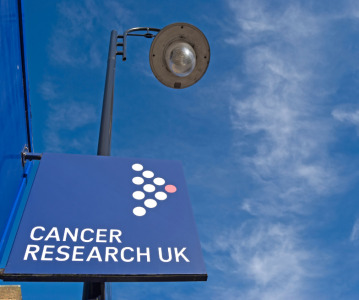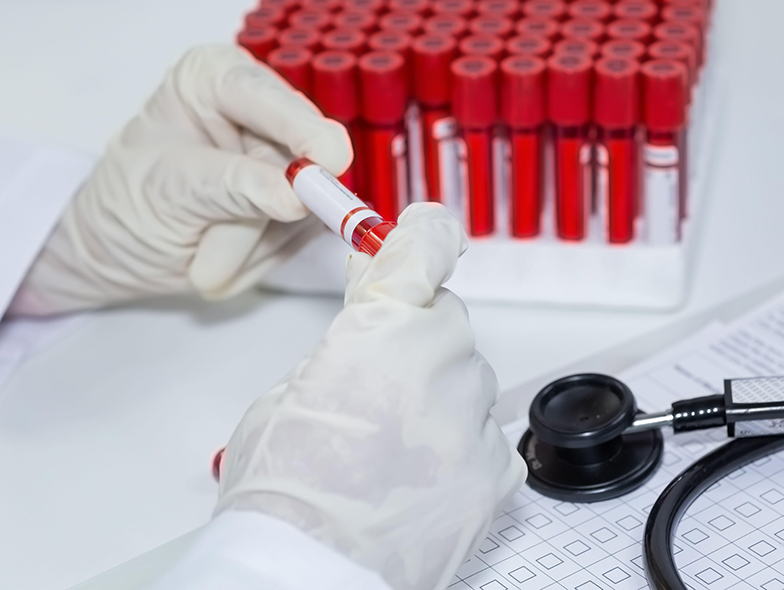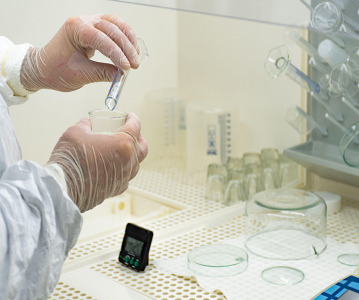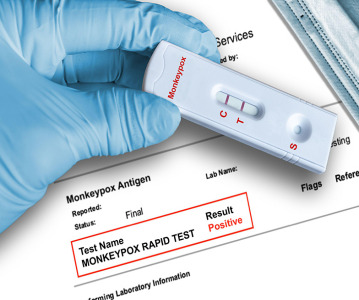Early Data Demonstrate Anti-TSLP Therapy Reduces Early and Late Asthmatic Responses and Several Key Inflammatory Markers

Amgen has announced that The New England Journal of Medicine (NEJM) published positive results from a Phase I study adding to the growing body of evidence that inhibiting thymic stromal lymphopoietin (TSLP) could be beneficial in the treatment of asthma. TSLP is a cytokine thought to be a key driver of allergic inflammation. These are the first clinical data to be reported for an anti-TSLP therapy. The results were also presented at the American Thoracic Society 2014 international conference taking place in San Diego.
Results from the 31-patient study showed treatment for 12 weeks with AMG 157, a monoclonal antibody that inhibits the activity of TSLP, resulted in statistically significant reductions in early asthmatic responses (EAR) and late asthmatic responses (LAR) in the airways following allergen challenges in patients with allergic (atopic) asthma. The data also showed statistically significant decreases in baseline markers of inflammation in the airways. Overall, adverse events were similar across treatment and placebo groups (15 events in the treatment arm versus 12 events in the placebo arm), with no serious adverse events occurring in the study.
"While these data are very early, they help to confirm our belief that TSLP is a critical early mediator that may be responsible for persisting airway inflammation and triggering the inflammatory response to allergens in allergic asthmatic patients," said Paul M. O'Byrne, MB, FRCPC, FRSC, executive director of the Firestone Institute for Respiratory Health, St. Joseph's Healthcare, Hamilton, Ontario, Canada. "These results form the basis for further development of this compound."
AMG 157 is a monoclonal immunoglobulin IgG2? that binds to and inhibits TSLP from interacting with its receptor. TSLP is a cytokine that is believed to play a critical role in the start of the allergic cascade, specifically the inflammatory response, and is generated by lung tissue when an allergen is introduced. Studies have also shown higher amounts of TSLP were produced in the lung tissue of individuals with asthma compared to healthy individuals, and the TSLP gene has been associated with both childhood and adult allergic asthma.
"Understanding the underlying biology of disease is critically important to continuing to discover novel treatments for patients suffering from a variety of diseases," said Brian Kotzin, MD, vice president of Global Development at Amgen. "These data give us insight into the importance of TSLP as a mediator of asthmatic response and the ability to inhibit inflammation in asthma."
MEDI9929/AMG 157[1] is being jointly developed by Amgen and AstraZeneca, with its global biologics research and development arm MedImmune. MEDI9929/AMG 157 is currently in Phase II development for the treatment of asthma.
"We are encouraged by these early results and look forward to leading further development of this promising new biologic in partnership with Amgen," said Bing Yao, PhD, senior vice president and head of MedImmune's Respiratory, Inflammation and Autoimmunity Innovative Medicines Unit. "The goal of the Phase II study is to understand if this approach could provide benefit for patients with severe asthma."
Reference
[1] As part of the collaboration agreement, the compound reference number has been changed from AMG 157 to MEDI9929/AMG 157. Phase II clinical studies are referenced on clinicaltrials.gov under MEDI9929 or AMG 157.
Related News
-
News CPHI Frankfurt 2022: Innovator Interview – DSM Biomedical
At CPHI Frankfurt we spoke to Anne-Cecile Bayne, Global Science & Innovation Lead Pharma and Medical Nutrition, and Marc Hendriks, Vice President Strategy & Business Development, on their expertise in nitrosamines and business strategy at DSM Biomedica... -
News New WHO health emergency guidelines expect full transparency from Big Pharma
The WHO are proposing a new set of pandemic guidelines to set out how future global health crises should be handled. -
News Magic mushrooms could be used to treat mental health conditions
A compound found in magic mushrooms, psilocybin, could be used to treat mental health conditions and help patients suffering with severe depression, as shown by the results of the largest study of its kind to date. -
News UK-based partnership to launch DETERMINE study into rare cancer research
UK-based CRO Quanticate is set to partner with Cancer Research UK for the launch of the DETERMINE study focused on testing a range of existing and approved drugs and therapies on rare cancers. -
News FDA approves Thermo Fisher blood tests for wheat and sesame allergies
Both tests have been approved by the US regulator for in vitro diagnostic use -
News QIAGEN launches world’s first syndromic test for monkeypox
The test can distinguish between monkeypox and other diseases that cause similar symptoms. -
News Monkeypox Update: Vaccine shortage, sewage surveillance and global testing
As concern over the monkeypox outbreak continues to rise, we take a look at major developments from the first week of August. -
News CPHI Podcast Series: The importance of novel excipients for innovative drug development
The latest episode in the CPHI Podcast Series dives into the world of novel excipients and explores their importance for innovative drug development.
Position your company at the heart of the global Pharma industry with a CPHI Online membership
-
Your products and solutions visible to thousands of visitors within the largest Pharma marketplace
-
Generate high-quality, engaged leads for your business, all year round
-
Promote your business as the industry’s thought-leader by hosting your reports, brochures and videos within your profile
-
Your company’s profile boosted at all participating CPHI events
-
An easy-to-use platform with a detailed dashboard showing your leads and performance

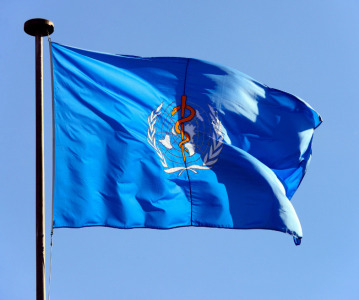
.png)
